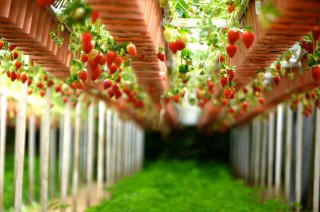
SECUREFOOD2050
Improving resilience and food security in 2050 climate through soilless precise agricultural techniques and irrigation with wastewater properly treated by innovative technologies to ensure food safety
Project coordinator:
Massimo Del Bubba PhD, University of Florence, Italy
Partner countries:
Algeria, Belgium, Egypt, Italy, Morocco
https://securefood2050.eu/
Scientific abstract
SECUREFOOD2050 consortium involves 6 academic partners (Italy, Belgium, Egypt, Algeria and Morocco) and 7 industrial partners. This project aims at mitigating the impact of climate changes by using innovative technologies for:
i) increasing the availability of water suitable for irrigation,
ii) reducing water use and demand,
iii) reducing the dependence on fertile land in countries predominantly characterized by sandy soils, and
iv) Increasing the willingness of farmers to use treated wastewater (TWW) for irrigation and of consumers to buy the agricultural products obtained by irrigation with TWW.
More in detail, the technical solutions proposed by SECUREFOOD2050 aim at the replacement of fresh water with TWWs obtained by using:
i) an innovative concept of constructed wetlands in which an artificially aerated bed is integrated with a biochar-based filtration section and
ii) bioaugmented septic tank.
Furthermore, aiming at reducing water and soil exploitation, our project will investigate aeroponics and biochar assisted cultivation systems, as innovative soilless agricultural techniques for crop (rocket, pepper, strawberry, tomato, cucumber, olive and prickly pear) production, in which TWWs will be adopted for irrigation. Experiments will be carried out under current 2050 worst climatic scenario. The project will monitor the safety and quality of the food products, covering a broad spectrum of contaminants characterized by different physicochemical properties and ability to diffuse along the agricultural production chain.
SECUREFOOD2050 will also take care of the social aspects concerning consumer preferences and acceptability, as well as farmer’s possible reluctances to using TWW for irrigation. The overall obtained results will be integrated with data referred to materials and resources used with the various cultivation techniques applied in the different climatic-environmental scenarios, to perform a life-cycle assessment (LCA) of the food products obtained.
Partners
Laboratory of Biomathematics, Biophysics, Biochemistry and Scientometry, Faculty of Life and Nature Sciences, University of Bejaia, Bejaia, Algeria
Department of Environmental Sciences and Management, Faculty of Sciences, University of Liège, Arlon, Belgium
National Research Centre, Water Pollution Research Department, Cairo, Egypt
Laboratory of Water, Biodiversity, and Climate Change, Samlalia Faculty of Science, University of Cadi Ayyad, Marrakech, Morocco
Department of Chemistry, University of Turin, Turin, Italy
